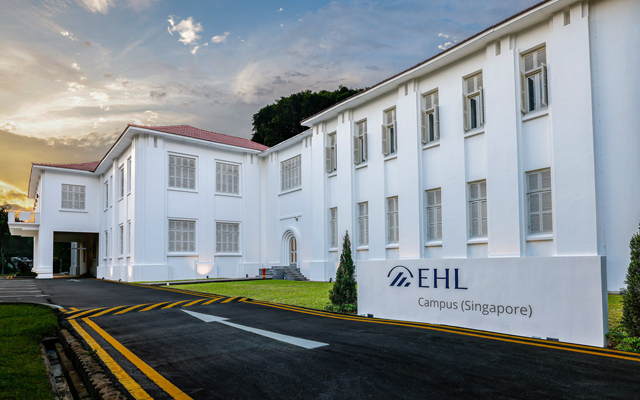EHL Hospitality Business School has piloted a customised training programme designed to help companies address evolving talent needs across the entire organisational structure.
The pilot was conducted on its Lausanne campus in Switzerland, with Lausanne University Hospital, where the programme was designed to “infuse a mindset of hospitality and service in both technical and medical aspects, and to develop training courses for different teams”, revealed Stephane Haddad, academic director graduate school and senior lecturer with EHL in an interview with TTG Asia. Training for the hospital focused on conflict resolution, emotional intelligence, and more.

This customised training programme is conceptualised and designed by a new division under Haddad’s remit.
He explained that the division was formed following a strong push from the school itself and growing demand from both hospitality and non-hospitality companies for customised, ongoing upskilling and reskilling programmes.
While the pilot was conducted on the other side of the globe, interest from Asian hospitality companies is strong. Haddad said there are ongoing discussions with a number of Singapore-based firms for similar, customised programmes, and these are likely to take off soon.
Haddad said for such training programmes to be successful, the company must make a longhual commitment to continued education. Breaking down the process of conceptualising the programme, Haddad explained that the EHL team would first work with the company to identify pain points, areas for improvements and required skills. Following the gap assessment, both EHL and the company will collaborate on the production of learning materials and standards used to address the gaps.
“Only after that comes training. And even so, training is not the end of the process,” said Haddad. “There needs to be ongoing assessment of that training, so that the whole organisation benefits and not just one department or segment of people.”
While this is a lengthy process, Haddad said most hospitality companies now acknowledge “this real need” for education investment.
Hospitality companies have emerged from the pandemic with an intense talent challenge that is aggravated by other industries fighting for the same profiles of people with valuable hospitality experience, he explained.
At the same time, companies are having to adapt to an altered employer/employee relationship, where leaders have to manage much younger employees who hold different views about their job. They expect a work environment that not only offers satisfactory compensation, but also flexible and agile working conditions, development opportunities with clear career pathways, as well as rapid progression.
Furthermore, there is a shortage of experienced staff, forcing some hospitality companies to “take in the first one who applies, even if he has no experience”. In such instances, access to immediate training is crucial.
Hospitality companies are also finding the need to catch up with digitalisation, as there is a “vast majority of people in this industry who are not digitally literate”, explained Haddad. Companies have to “upgrade” their staff to “match operating capability with the systems the companies want to deploy”.
Customised courses would range widely, from imparting digital knowledge to people management skills. Haddad shared that work is underway for a course on identifying, addressing and shifting toxic management.
Besides the customised training programme, EHL continues to offer standardised programmes that are more flexible to take on. These include a suite of online certificates for hard and soft hospitality skills, which employers can choose to fund for their staff.
















